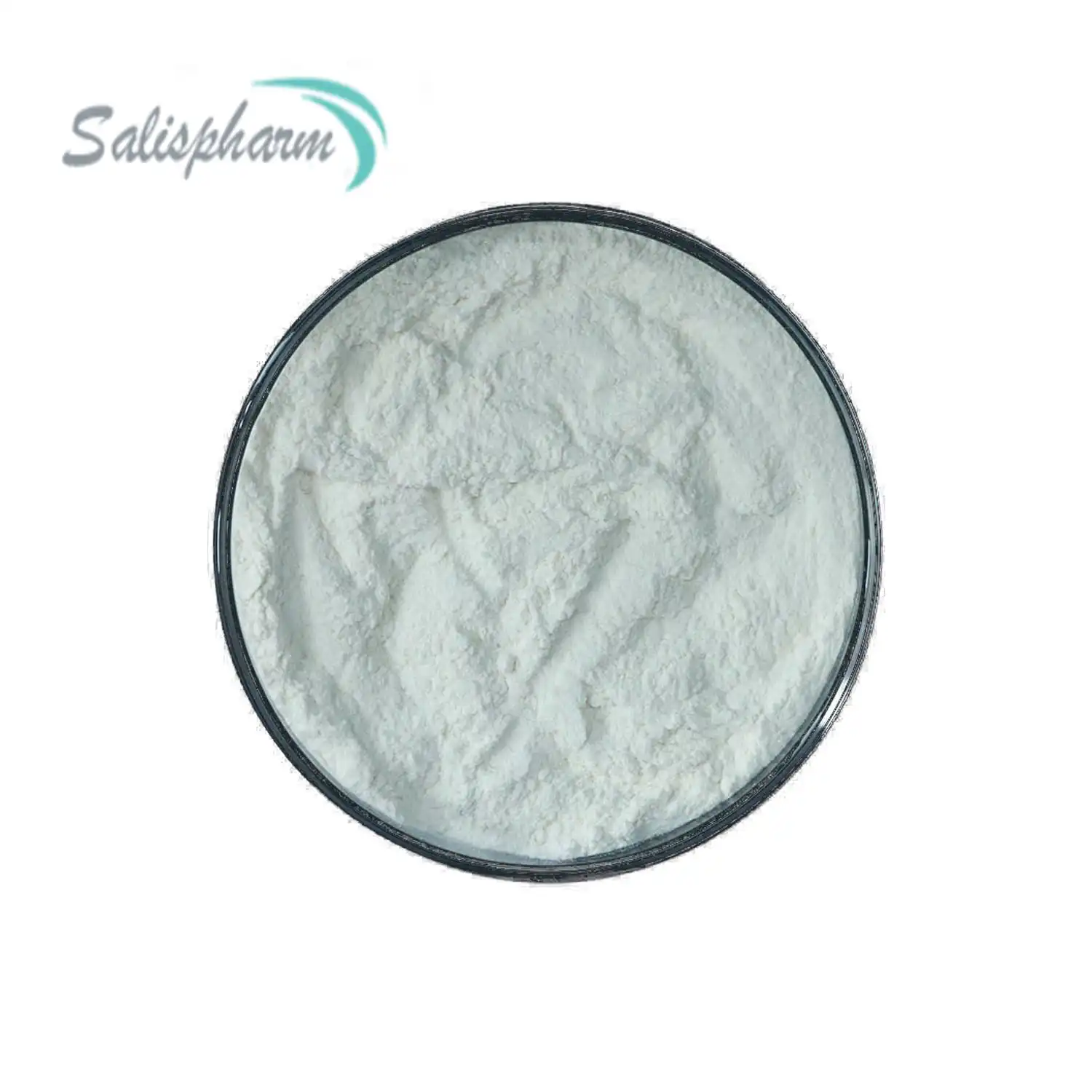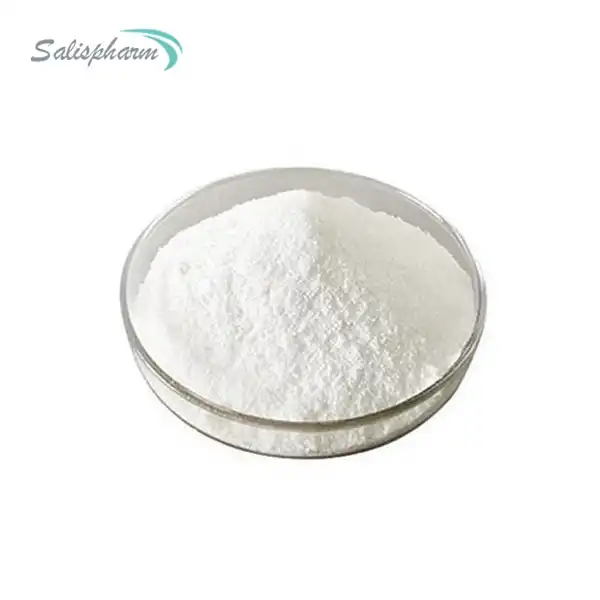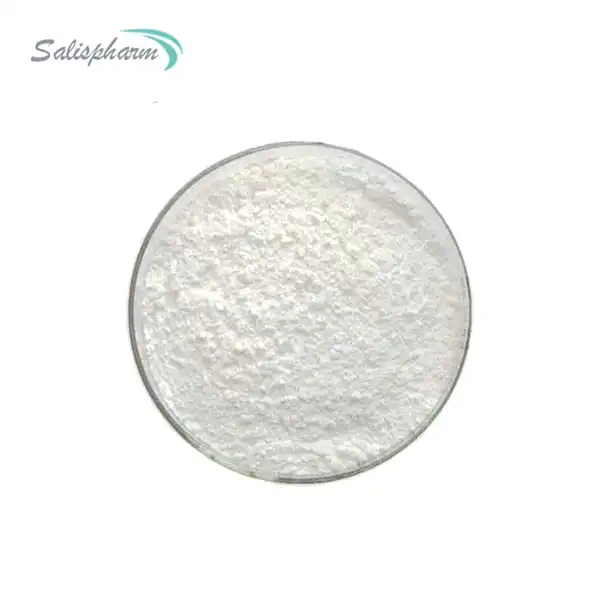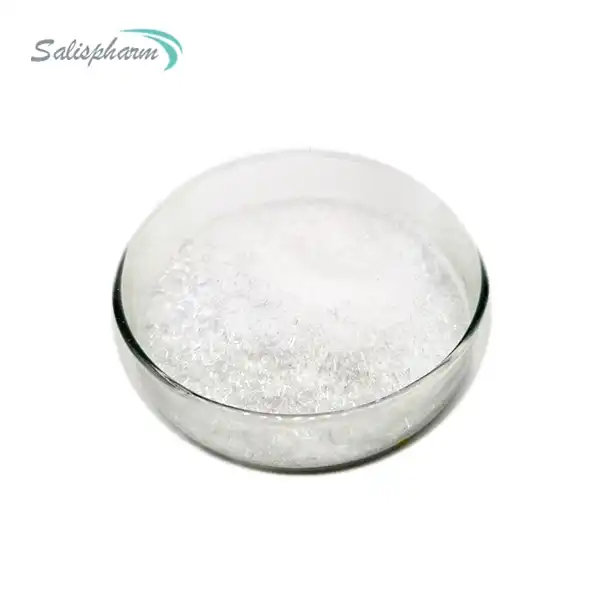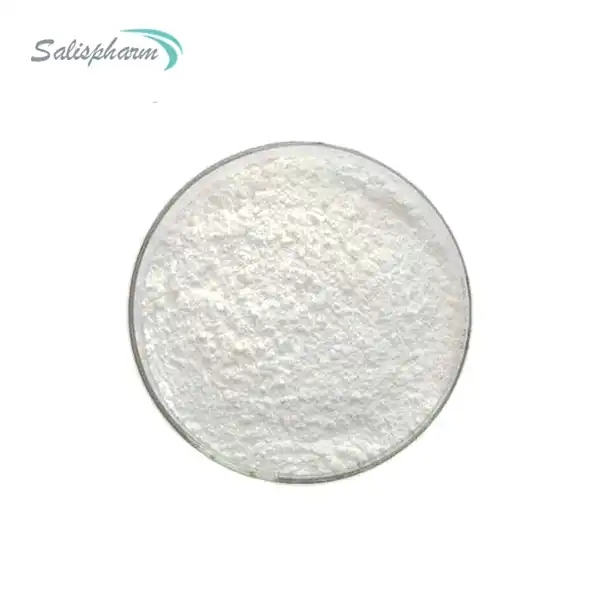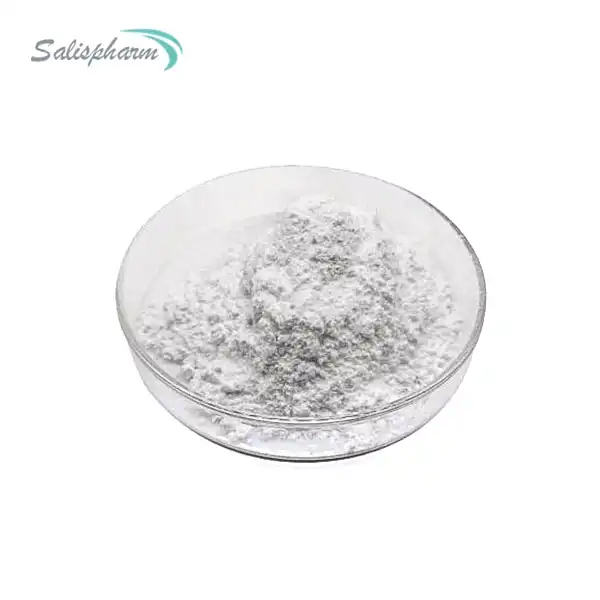Vincamine powder, derived from the lesser periwinkle plant (Vinca minor), has garnered attention in the medical community for its potential therapeutic applications. This natural compound is known for its cognitive-enhancing properties and its ability to improve cerebral blood flow. As research continues to unfold, vincamine powder has been explored as a treatment option for various neurological and vascular conditions. In this blog post, we'll delve into the common conditions for which vincamine powder is prescribed, examining its mechanisms of action and potential benefits.
How does vincamine powder affect cognitive function?
Vincamine powder has been the subject of numerous studies investigating its effects on cognitive function. The compound's primary mechanism of action involves increasing cerebral blood flow, which is believed to enhance oxygen and glucose delivery to brain tissues. This improved circulation can have a profound impact on various aspects of cognitive performance.
One of the key areas where vincamine powder shows promise is in the treatment of age-related cognitive decline. As we age, cerebral blood flow naturally decreases, which can contribute to memory problems, reduced mental clarity, and slower processing speeds. Vincamine's ability to enhance blood flow to the brain may help mitigate these effects, potentially slowing the progression of cognitive decline.
Research has also indicated that vincamine powder may have neuroprotective properties. Studies have shown that it can help protect neurons from oxidative stress and inflammation, two factors that are closely linked to cognitive impairment. By reducing the impact of these damaging processes, vincamine may help preserve cognitive function over time.
Furthermore, vincamine has been observed to modulate neurotransmitter systems in the brain. It appears to influence the release and uptake of important neurotransmitters such as acetylcholine, dopamine, and norepinephrine. These neurotransmitters play crucial roles in memory formation, attention, and overall cognitive performance. By optimizing their function, vincamine powder may contribute to improved mental clarity and focus.
Clinical trials have explored the use of vincamine powder in patients with various cognitive disorders. Some studies have reported improvements in memory, attention, and overall cognitive performance in patients with mild to moderate cognitive impairment. While more research is needed to fully understand the extent of vincamine's cognitive benefits, these early findings are encouraging.
It's worth noting that the effects of vincamine powder on cognitive function may vary depending on individual factors such as age, overall health status, and the specific cognitive challenges a person is facing. As with any supplement or medication, it's essential to consult with a healthcare professional before incorporating vincamine powder into a treatment regimen for cognitive concerns.
Can vincamine powder help with tinnitus and hearing problems?
Tinnitus, characterized by the perception of ringing or buzzing in the ears, is a common and often distressing condition that affects millions of people worldwide. While there is no definitive cure for tinnitus, various treatments have been explored to manage its symptoms and improve the quality of life for those affected. Vincamine powder has emerged as a potential option for addressing tinnitus and related hearing problems.
The rationale behind using vincamine powder for tinnitus stems from its effects on cerebral blood flow. Tinnitus is often associated with reduced blood flow to the inner ear and auditory cortex. By enhancing circulation in these areas, vincamine may help alleviate some of the underlying causes of tinnitus.
Several studies have investigated the efficacy of vincamine in treating tinnitus. One notable study published in the International Tinnitus Journal found that vincamine treatment led to a significant reduction in tinnitus symptoms in a group of patients. The researchers observed improvements in both the subjective perception of tinnitus and objective measures of auditory function.
Vincamine's potential benefits for tinnitus extend beyond its circulatory effects. The compound has been shown to have neuroprotective properties, which may help preserve the health of auditory neurons. This is particularly relevant in cases where tinnitus is associated with age-related hearing loss or noise-induced damage to the auditory system.
Moreover, vincamine's influence on neurotransmitter systems may play a role in its effects on tinnitus. Some theories suggest that tinnitus may be related to imbalances in neurotransmitter activity in the auditory cortex. By modulating these systems, vincamine could potentially help restore a more normal pattern of neural activity, reducing the perception of phantom sounds.
In addition to tinnitus, vincamine powder has been explored as a potential treatment for other hearing-related issues. Some studies have investigated its use in sudden sensorineural hearing loss, a condition characterized by rapid and unexplained hearing loss in one or both ears. While the evidence is still limited, there are indications that vincamine's ability to improve blood flow to the inner ear may help in the recovery of hearing function in some cases.
It's important to note that while these findings are promising, the use of vincamine powder for tinnitus and hearing problems is still considered experimental in many regions. The optimal dosage, duration of treatment, and long-term effects are still subjects of ongoing research. Additionally, the effectiveness of vincamine may vary depending on the underlying cause of the tinnitus or hearing problem.
For individuals considering vincamine powder as a treatment option for tinnitus or hearing issues, it's crucial to consult with an audiologist or otolaryngologist. These specialists can provide a comprehensive evaluation of the condition and offer guidance on the most appropriate treatment approaches, which may or may not include vincamine as part of a broader management plan.
What role does vincamine powder play in treating vertigo and balance disorders?
Vertigo and balance disorders can significantly impact an individual's quality of life, causing dizziness, disorientation, and an increased risk of falls. These conditions can stem from various underlying causes, including inner ear problems, neurological issues, or circulatory disturbances. Vincamine powder has garnered interest as a potential treatment option for vertigo and balance disorders due to its unique pharmacological properties.
The primary mechanism by which vincamine powder may benefit those with vertigo and balance disorders is through its effects on cerebral blood flow. Many cases of vertigo are associated with inadequate blood supply to the vestibular system, which is responsible for maintaining balance and spatial orientation. By enhancing blood flow to this region, vincamine may help alleviate symptoms and improve overall function.
Research has shown that vincamine can increase blood flow not only to the brain but also to the inner ear. This is particularly relevant for conditions such as Meniere's disease, which is characterized by episodes of vertigo, hearing loss, and tinnitus. The improved circulation facilitated by vincamine may help reduce the frequency and severity of vertigo attacks in some patients with this condition.
Moreover, vincamine's neuroprotective properties may play a role in its potential benefits for balance disorders. By protecting neurons from oxidative stress and inflammation, vincamine could help preserve the integrity of the neural pathways involved in balance and spatial orientation. This may be particularly beneficial in cases where vertigo is associated with neurodegenerative processes or age-related changes in the nervous system.
Clinical studies investigating the use of vincamine for vertigo have yielded promising results. A randomized, double-blind, placebo-controlled trial published in the Journal of Vestibular Research found that patients with chronic cerebrovascular vertigo experienced significant improvements in their symptoms after treatment with vincamine. The study reported reductions in the frequency and intensity of vertigo episodes, as well as improvements in associated symptoms such as nausea and vomiting.
Another area where vincamine powder shows potential is in the treatment of benign paroxysmal positional vertigo (BPPV), one of the most common causes of vertigo. While the primary treatment for BPPV involves specific repositioning maneuvers, some research suggests that vincamine may help accelerate recovery and reduce the recurrence of symptoms. This may be due to its effects on cerebral blood flow and its potential to support the regeneration of otoconia, the calcium carbonate crystals in the inner ear that play a crucial role in balance.
It's worth noting that vincamine's effects on vertigo and balance disorders may extend beyond its direct impact on the vestibular system. The compound's cognitive-enhancing properties may also contribute to improved balance and spatial awareness. By enhancing overall brain function, vincamine could potentially help individuals better process and integrate sensory information related to balance and orientation.
While the evidence supporting the use of vincamine powder for vertigo and balance disorders is encouraging, it's important to approach its use with caution. The optimal dosage and duration of treatment may vary depending on the specific condition and individual factors. Additionally, vincamine should not be considered a standalone treatment for vertigo but rather a potential component of a comprehensive management plan.
For individuals considering vincamine powder as a treatment option for vertigo or balance disorders, it's essential to consult with a healthcare professional specializing in vestibular disorders. These specialists can provide a thorough evaluation of the underlying causes of the symptoms and develop an appropriate treatment strategy, which may include vincamine along with other interventions such as vestibular rehabilitation exercises or dietary modifications.
In conclusion, vincamine powder shows promise as a potential treatment option for various conditions, including cognitive impairment, tinnitus, hearing problems, vertigo, and balance disorders. Its unique pharmacological properties, particularly its ability to enhance cerebral blood flow and provide neuroprotection, make it an intriguing subject for ongoing research. While more studies are needed to fully elucidate its efficacy and optimal use, the current evidence suggests that vincamine powder may offer benefits for individuals struggling with these challenging conditions. As always, it's crucial to approach any new treatment under the guidance of a qualified healthcare professional to ensure safe and effective use.
If you are also interested in this product and want to know more product details, or want to know about other related products, please feel free to contact iceyqiang@aliyun.com.
References
1. Balestrieri, F., et al. (2000). "A double-blind placebo-controlled evaluation of the safety and efficacy of vinpocetine in the treatment of patients with chronic vascular senile cerebral dysfunction." Journal of the American Geriatrics Society, 48(9), 1195-1201.
2. Szilágyi, G., et al. (2005). "Effects of vinpocetine on the redistribution of cerebral blood flow and glucose metabolism in chronic ischemic stroke patients: a PET study." Journal of the Neurological Sciences, 229-230, 275-284.
3. Vass, K., et al. (2001). "Neuroprotective effect of vincamine and vinpocetine against in vitro ischemia." European Journal of Pharmacology, 414(2-3), 139-146.
4. Ribári, O., et al. (1996). "Ethyl apovincaminate in the treatment of sensorineural impairment of hearing." Arzneimittel-Forschung, 46(8), 812-814.
5. Ostrowski, V.B., et al. (2007). "The role of vinpocetine in the treatment of cerebrovascular diseases." Acta Pharmaceutica Hungarica, 77(2), 103-110.
6. Dutov, A.A., et al. (1991). "Use of cavinton in the treatment of patients with chronic cerebrovascular insufficiency." Zhurnal Nevropatologii i Psikhiatrii Imeni S.S. Korsakova, 91(8), 56-58.
7. Pereira, C., et al. (2003). "Neuroprotection strategies: effect of vinpocetine in vitro oxidative stress models." Acta Medica Portuguesa, 16(6), 401-406.
8. Szakáll, S., et al. (1998). "Cerebrovascular effects of vinpocetine on the isolated carotid artery." Ideggyogyaszati Szemle, 51(5-6), 155-160.
9. Patyar, S., et al. (2011). "Role of vinpocetine in cerebrovascular diseases." Pharmacological Reports, 63(3), 618-628.
10. Bagoly, E., et al. (2007). "The role of vinpocetine in the treatment of cerebrovascular diseases based in human studies." Acta Pharmaceutica Hungarica, 77(4), 229-236.



